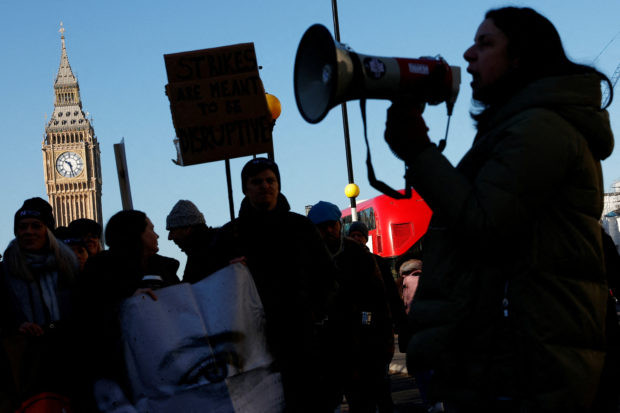
LONDON – British employers offered the biggest annual pay rises in 32 years during the three months to the end of January, but these increases are still a long way behind double-digit inflation, industry data showed on Wednesday.
Human resources data company XpertHR said the median basic pay settlement in the three months to end of January jumped to 6 percent from 5 percent in the final quarter of 2022, their highest since September 1991.
These survey results were in line with provisional data for the period which XpertHR published on Feb. 3.
British consumer price inflation hit 10.1 percent in January, cooling slightly from a 41-year high of 11.1 percent in October. Economists polled by Reuters this month expect inflation to average 7 percent this year, and 2.6 percent in 2024.
Sheila Attwood, senior content manager at XpertHR, said the January data was significant as it gave employers an indication of where wage deals are heading.
“Of course, businesses will want to keep pace with inflation and give staff all the financial support they can, but a lot simply cannot afford an increase of that magnitude,” Attwood said.
Nurses, public transport staff and teachers are among the workers who have gone on strike in recent months seeking higher pay in the face of soaring prices.
“There is no denying tensions between employers and their employees are high at the moment, with industrial action across various sectors dominating the headlines – and dispute over pay is a key factor,” she added.
Meanwhile the Bank of England is worried that rising wages could delay its efforts to return inflation to its 2 percent target.
BoE Governor Andrew Bailey expressed concerns about wage-setting, despite signalling the tide was turning on inflation.
Official data from the Office for National Statistics, published last week, showed basic pay grew faster than expected in the final three months of 2022.
Average weekly earnings excluding bonuses were 6.7 percent higher than a year earlier – the fastest growth since records started in 2001, apart from when there were distortions due to furlough support during the COVID-19 pandemic.

